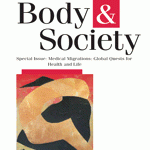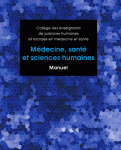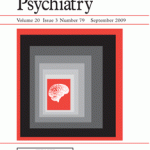Colloque – Santé et protection sociale de 1800 à nos jours
Colloque sur l’hygiène, la santé et la protection sociale de la fin du XVIIIe siècle à nos jours. Avec cinq conférences à dimension historique (1780-1920), suivies chacune d’un débat, et une table ronde finale sur les enjeux actuels des politiques de santé (avec des acteurs du monde professionnel). Conçu dans le cadre de la préparation du concours de l’ENS, ce colloque est ouvert à tous (sur inscription) et donnera lieu à une publication en février 2012.
Second colloque public des « Lettres sup »
Santé et protection sociale de 1800 à nos jours
Saint-Etienne, 19 octobre 2011
(Grand amphithéâtre du lycée Claude Fauriel, 8h45-17h30)
Conférences, débats et table ronde
OBJECTIFS
Fort de la réussite de la journée de conférences et de débats sur « Les mondes du travail de 1800 à nos jours », organisée au lycée Fauriel le 20 janvier 2011 (avec plus de 170 participants), nous proposons de renouveler l’expérience à la lumière du nouveau programme d’histoire contemporaine pour la session 2012 du concours des Écoles normales supérieures de Paris et Lyon : « Hygiène et santé en Europe de la fin du XVIIIe siècle aux lendemains de la Première Guerre mondiale ».
La spécificité de ce projet est de favoriser la rencontre entre chercheurs, professionnels de la santé et un public composé d’étudiants, d’enseignants et d’auditeurs extérieurs puisque les conférences sont ouvertes à tous (entrée libre sur inscription). Ce projet répond à plusieurs objectifs.
Diffuser les connaissances et faire l’état de la recherche en cours dans le cadre du programme de l’ENS.
Confronter les points de vue et favoriser les débats entre les chercheurs et universitaires, mais aussi les représentants institutionnels et les acteurs de la vie professionnelle, à l’issue de chaque conférence et lors de la table ronde finale.
La publication des actes est prévue chez Ellipses en février 2012, grâce au soutien financier de l’AEHSS et de l’ENS.
Les actes de la journée du 20 janvier sont parus dans les Cahiers du Chatefp, n° 14 (juin 2011), ils sont téléchargeables librement sur http://www.travail-emploi-sante.gouv.fr/IMG/pdf/Actes-Fauriel-def_3_couleurs_BR.pdf. Une dizaine d’étudiants de seconde année (Khâgneux présentant le concours de l’ENS) ont rédigé des comptes rendus d’ouvrages tandis qu’une douzaine d’étudiants de première année (Hypokhâgneux) ont constitué l’équipe éditoriale.
PROGRAMME
8h30 : accueil.
8h45 : début du colloque.
Hygiène et santé (fin XVIIIe siècle–1920)
[9h00] La santé, un savoir-vivre en société : intentions et pratiques de l’hygiénisme du XIXe siècle, par Didier Nourrisson, professeur d’histoire contemporaine de l’Université Claude Bernard Lyon 1-IUFM de Lyon.
[10h20] Les patients face à la maladie et à la médecine fin XVIIIe-début XXe siècle, par Olivier Faure, professeur d’histoire contemporaine à l’Université Jean Moulin-Lyon 3.
[11h30] La santé publique pendant la Grande Guerre, par Vincent Viet, chercheur au Cermes 3 (Centre de recherches Médecine, Sciences, Santé, Société), UMR 8211, Paris.
Politiques de santé et Sécurité sociale (XIXe–XXIe siècles)
Destruction massive, désorganisation massive: la grippe « espagnole » et le double schéma de la crise épidémique (1918-1920), par Patrick Zylberman, professeur d’histoire de la santé à École des Hautes Études en Santé Publique (EHESP) de Rennes et chercheur au Cermes 3, Paris.
La protection sociale en France : la construction d’une « République sociale », par Yannick Marec, professeur d’histoire contemporaine à l’université de Rouen.
Table ronde sur les enjeux actuels de la politique de santé : maîtrise des dépenses de santé, frontière entre assurances maladie obligatoire et complémentaire, clivage entre médecine privée et médecine privée, etc. Avec les historiens présents et des acteurs du monde professionnel : Ramon Baldié, directeur adjoint de l’École Nationale Supérieure de Sécurité Sociale (EN3S) de Saint-Étienne ; NorbertDeville, directeur général du CETAF de la Loire (Centre technique d’appui et de formation des Centres d’examens de santé) ; Jean-Christophe Baudin, administrateur de la Mutuelle générale de l’Éducation nationale (MGEN), chargé de la région Rhône-Alpes.
Chaque conférence est suivie d’un débat.
Horaires indicatifs, à préciser lors de votre inscription car l’amphithéâtre a une capacité de 170 places en grande partie occupée par les étudiants.
LES PARTENAIRES
Comité d’Histoire de la Sécurité sociale (CHSS).
Association pour l’étude de l’histoire de la Sécurité sociale (AEHESS).
École Nationale Supérieure de Sécurité Sociale (EN3S) de Saint-Étienne.
École des Hautes Études en Santé Publique (EHESP), Rennes.
Centre technique d’appui et de formation des Centres d’examens de santé (CETAF) de la Loire.
Mutuelle générale de l’Éducation nationale (MGEN), Saint-Etienne.
Colloque ouvert à tous, entrée libre et gratuite (dans la limite des places disponibles).
Merci de bien vouloir vous inscrire.
Contact
Franck Thénard-Duvivier
courriel : prepahistoirefauriel (at) orange [point] fr
CPGE Claude-Fauriel, 28 av. de la Libération, 42007 Saint-Etienne




 ori encounters with the Auckland Mental Hospital, 1860—1900
ori encounters with the Auckland Mental Hospital, 1860—1900